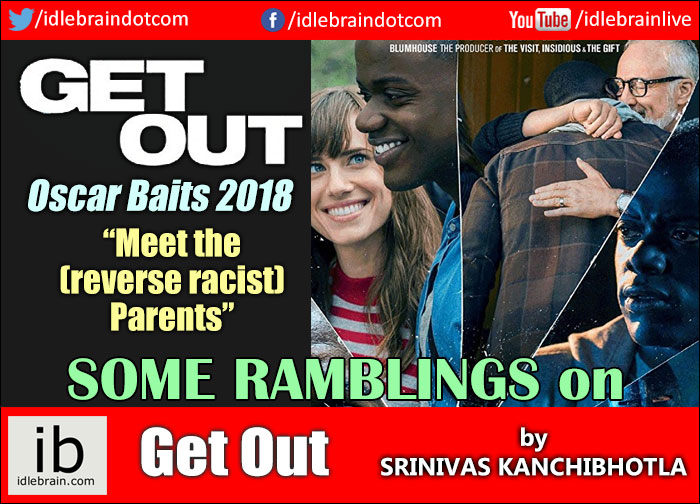
In a recent townhall session, Justin Trudeau, the Canadian Prime Minister, corrects a questioner about her use of the word "mankind" and substitutes it with "peoplekind", just to be on the safe side of being more inclusive and lock step and in tune with current social climate of women asserting their rights to go about their lives and jobs unharassed and unbothered at their places of work. While his broadmindedness had garnered a generous round of applause from the audience present, there is no question that there is a lot of enthusiasm over the over-compensation and over-correction going on in the current liberal circles trying to (over-)correct all the wrongs that have been meted out to different sections of the society during various periods of Western civilization, all by themselves. And then, there is this other controversy about whether statues of Civil War era generals who fought against the American Union (and therefore against the abolishment of slavery) should be taken down in the Dixieland, which threw gasoline one more time on the long smoldering issue of statue of limitations on historical injustices. Between the over-sensitivity of the liberals and tone deafness of the hardliners, the scales of common sense and decency continue to fluctuate wildly when it comes to matters like gender, class, and the great elephant in the room, RACE.
'Get Out' is much more than a satire about the liberal bent. It is rather a super smart subterfuge about the white guilt wrapped in the only genre that's apt to the context - horror. It is a common experience, that when into a company of equals (in race, class or privilege, religion, region et al) walks in a person of different disposition, the group, if a well-intentioned one, would automatically course correct itself, in tone, caution and references, and tries to accommodate the new entrant making him feel welcome. This group dynamic happens automatically without any elbowing or nudging or winking or any other overt prompting measures, just as easily as a bird flock changing directions mid-air. That is not to say it is entirely involuntary either. The adjustment happens at a subconscious level. It becomes a high-wire act trying for a balance that has to be just right, as it might appear patronizing (instead of, pleasing) or condesending (as againt, accommodating) even if the group goes too much out its way in embracing the newest memeber, or downright rude (inviting its brethren tags such as racist, classist, protectionist etc) if the group appears unmoved by the latest addition. 'Get Out' smartly marries the two genres that each individually has the potential for bringing out the discomfort at the most inopportune of moments, one, meeting the girl friend's family genre, and second, clubbing the races genre. Meeting the other side (particularly, the boy meeting girl's side) is always an exercise of constant judgment, about the boy's stature, standing, behavior, and more importantly, his fissures and fault lines (never more hilarious than in 'Meet the parents', which sets suspicion of the father than paranoia of boy in collision course). Add to that, if the boy belongs to a different race altogther, then it is no longer a straightforward peer review, the lens of judgment changes completely calling into question his social, political and historical views on race relations. This situation can be played both as a horror (as it happens in what starts off as a open conversation about race at a dinner table in an explosive sequence in 'American History X') or as a straight comedy of manners, where each side bends over backwards trying to accommodate the other and end up falling over each other in the process. 'Get Out' straddles the middle path between horror and comedy, playing with the incredulity of the black with the insesitivity of the white ('I would have voted for Obama the third term around too', 'That Tiger Woods, he is something', 'Is it true what they say about black men').
'Get Out' borrows the conceit of 'The Stepford Wives' titrates it with the paranoia of 'Rosemary's Baby' and distills it with the strainer of 'Meet the Parents'. Except, it doesn't just stop there, it throws in the miasma of race relations for a good measure, and the result is equal parts funny and discomfort. The movie arrives at a strange time in American history, when it has voted (twice) for Obama and patted its back for looking past color and considered itself a post-racial society, only to have the needle moved to the other extreme, eight years later, electing someone whose only exhortation to the blacks during the campaign was "what the hell do you have to lose by voting for me", in a sort of backlash to the liberal self-congratulatory mindset the country was basking in, wrongly assuming that electing a black man would clear away the unaswered prickly questions about race. This is certainly a high mark for a script that never explicitly talks about any of these but alludes to each one of the issues (including the killing of the unarmed kid, Trayvon Martin, a few years ago, at the hands of a trigger-happy white gent for no other reason than WWB - Walking While Black, and then get acquitted at that!) in a passing mention (and hence the subterfuge!). While the other genre elements work just fine, with the necessary spooks and the scares, what could have elevated the movie to absolute masterpiece was a slight change in the end, where instead of regular revenge action, the script taking a braver route of the black man, with a weapon in hand, getting shot at, while hovering over a dying white person, by the police mistaking him for the actual killer, in what would have been a final check off of another facet of the African-American experience in America, 'Shoot first! Ask questions later'. That would have surely had the race cup running over!
checkout http://kanchib.blogspot.com for Srinivas's Blog.
